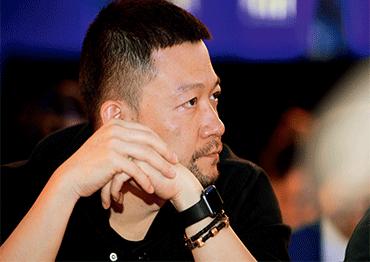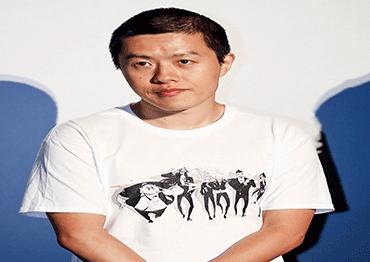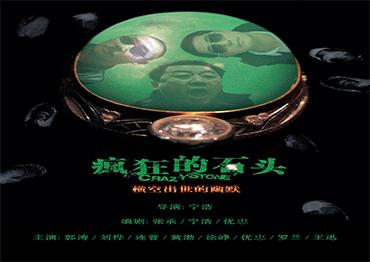Film critic and curator Sha Dan said that while new filmmakers are distinct, they still share a similarity - outstanding storytelling, which is key to their box office success.
For a long time, storytelling was not encouraged at the Beijing Film Academy (BFA). As the cradle of Chinese film talent, BFA almuni include Zhang Yimou, Chen Kaige, Tian Zhuangzhuang, Jia Zhangke and Gu Changwei.
Chen Shan said in the 1980s when the fifth generation of directors studied at the BFA, the school emphasized visual subjectivity over storytelling.
“At the time, we believed that film was a work of art, and it was necessary to de-emphasize the film’s narrative. We thought that good movies should never be ones that merely tell stories. I remember after Zhang Yimou finished Red Sorghum, he came back to school and nervously apologized that he was telling too much story,” Chen told NewsChina.
“After the Cultural Revolution in the 1980s, film scholars, teachers and students had the same goal - to improve the artistic quality of films and make Chinese films more influential in international cinema. From creative ideas to techniques, the fifth generation took on this mission.
“The sixth generation was still following in the footsteps of the fifth generation in making art films, but they were more individualistic in cinematic expression. They actually wanted to make something similar to French new wave films,” Chen told NewsChina.
The sixth generation entered the industry in the 1990s to a prospering market economy. It was hard to get funding for art films, which led directors to make low-budget, underground films. Their works have been cut, banned or relegated to limited release domestically. But many won awards on the international film festival circuit.
The new generation of filmmakers are neither burdened with having to retell history nor a focus on individualized and marginalized living experiences. Instead, young creators tell good stories and embrace their markets.
In 2011, Wen Muye joined BFA’s post-graduate directing program. His supervisor was fifth generation director Tian Zhuangzhuang.
Chen said students like Lu Yang and Wen Muye are very open-minded and broad in vision. “In the 1980s, fifth generation directors mainly took professional film courses such as cinematography or art design. Nowadays, young students are interested in everything. Besides European art films, they also draw inspiration from Hollywood, Japan, South Korea and Hong Kong,” Chen said.
Wen’s directorial debut Dying to Survive tells a fact-based story of a small drugstore owner whose smuggling of affordable generic drugs from India vastly improves the lives of many leukemia patients. With 60 million yuan (US$8.7m) in funding, the mid-budget production eventually took in 3.1 billion yuan (US$452m) at the box office, far beyond the director’s expectations.
“All I wanted to do was to use the way that I felt most comfortable to make a film that could thoroughly convey the powerful energy in both the subject and characters,” Wen told NewsChina. “As a professional director, I hoped I wouldn’t lose my investors’ money. These were my expectations for my feature debut.”
The majority of Dying to Survive was filmed with hand-held video cameras in medium and close-up shots. The shakiness of handheld cams is a form of stylistic expression in art film preferred by many sixth generation creators, particularly Lou Ye.
Unlike his predecessors, Wen used handheld cameras not to emulate a certain style but to allow the technique to serve the story, helping audiences feel the power of the characters. Though the entire film has shaky shots that serve the mood and pace of the story, audiences are unconscious of them.
“In the course of filming I kept asking myself - if I were in the audience, would this film have done well enough in both moving me and expressing the creator’s message?” Wen told NewsChina. “Like a cook, you need to taste before you serve the dish,�� he added.
The young director has broad tastes. He loves Sydney Pollack’s Out of Africa (1985) and Hou Hsiao-hsien’s A Summer at Grandpa’s (1984), and also enjoys South Korean TV dramas My Love From the Star (2013) and Reply 1988 (2015).
“For me, a good movie is one that can touch me. It doesn’t matter if it’s a commercial blockbuster or an independent art film. Good storytelling and pursuit of artistic expression never conflict,” Wen said.
Chen Shan prefers to call young directors “fifth generation plus,” because they not only pursue art and self-expression like the fifth generation, but also use technique to serve the story to make their works more accessible to the general public.
“Both Dying to Survive and The Wandering Earth have depth and profundity, and they beautifully deliver their messages to the general public. For creators, the most difficult and marvelous thing is to create works that appeal to both refined and popular tastes. They have successfully made professors and fish vendors get what they want from the films.
“Essentially speaking, if a film can enable everyone to get something different from it, then it’s actually providing a liberating space for people from all walks of life,” Chen said.

 Old Version
Old Version






